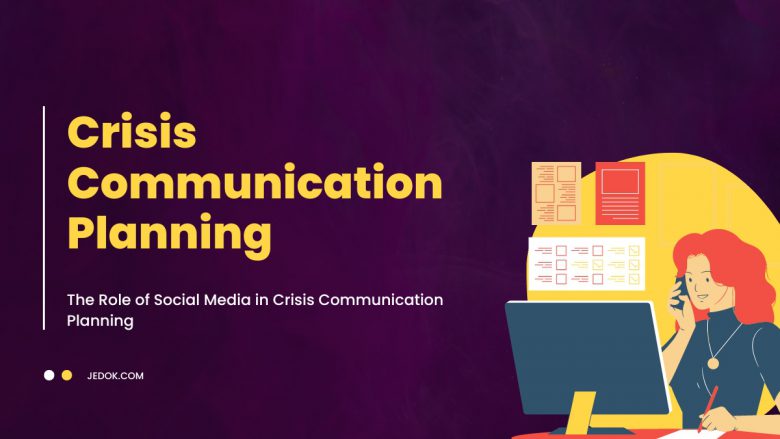
In today’s world, social media has become an essential tool for communication, especially in times of crisis. Here are some key points to consider regarding the role of social media in crisis communication planning:
1. Social media as a critical channel for disseminating information
Social media has become an important communication tool in modern society. It can be used to disseminate information, support people during crises, and build relationships. In a crisis situation, social media can serve as a critical channel for disseminating information to the public. Social media can also be used to provide support to people affected by the crisis. By using social media, organizations can build relationships with their customers and supporters.
2. Importance of pre-planning
Pre-planning is essential to effective social media crisis communication planning. By having a pre-planned social media policy in place, organizations can create clear expectations for their employees and better manage potential crises. Additionally, pre-planning can help prevent social media crises from arising in the first place. A pre-planned strategy also allows for better coordination between different departments within an organization, as well as with external partners. With a pre-planned procedure in place, organizations can quickly and effectively respond to any potential social media crisis.
3. Real-time monitoring of social media
Real-time monitoring of social media can be an excellent source of information during a crisis. During a natural disaster, for example, social media platforms can be used to assess the damage and track the response. Social media can also be a valuable tool for Crisis Communications Planning during a public health emergency. For example, if there is an outbreak of a disease, social media can provide critical insights into how people are responding and how the government is responding. In both cases, real-time monitoring of social media can help to ensure that the correct actions are being taken and that people are aware of what is happening.
4. Engage with your audience
Social media can be an effective tool for crisis communication planning, as it provides a way to engage with your audience directly. By providing timely and relevant information, you can help prevent potential misunderstandings or panic among your followers.
It is essential to keep social media accounts updated and informative, as this will help build trust and credibility with your followers. Be sure to use crisp, concise language when posting updates, as this will make your content more easily digestible.
Make use of hashtags and other search engine optimization techniques when posting updates so that your content is easily found by potential followers who are looking for information about the crisis at hand. In addition, consider using images and videos to supplement your text-based updates.
5. Crisis response in real-time
In times of crisis, social media can be an effective tool for real-time crisis response. For example, companies can use social media to an. key players and stakeholders in the situation, update followers on the latest developments and solicit feedback. Additionally, social media can be used to collect data on how people are responding to the crisis and to identify potential solutions.
6. Social media for reputation management
When it comes to managing a reputation during a crisis, social media can be an essential tool. By providing accurate information, social media can help organizations keep their reputation strong while they work to correct the situation. Additionally, social media can be used to provide updates on the crisis and solicit feedback from customers and other stakeholders. To maximize the effectiveness of social media for reputation management during a crisis, it is important to consider the following factors:
- What types of content should be posted?
- How often should updates be posted?
- Where should posts be made?
- Who should post updates?
- What tone should posts take?
- Should logos or other branding features be included in posts?
- How will responses to posts be monitored and responded to?


